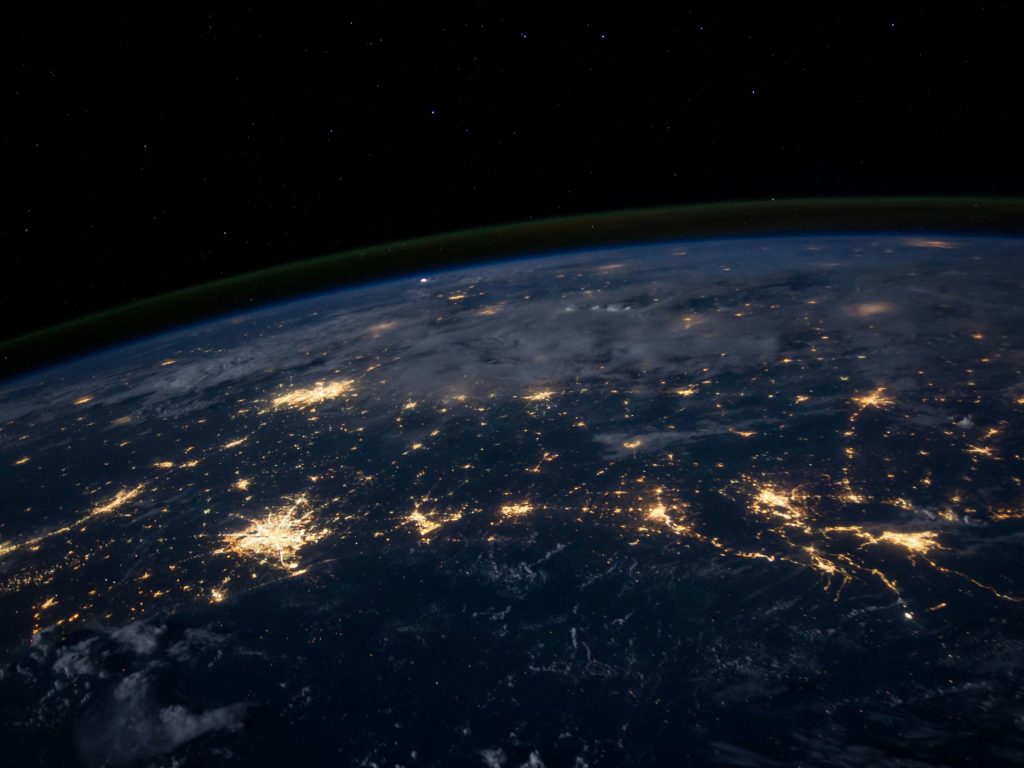What’s going on around you right now? Right now as you read this article. Have a look around. Maybe you’re on the bus or the train travelling to or from work. All around you are people doing the same thing as you: sitting or standing in as comfortable a position as they can find; most of them locked away in a private world demarcated with a smartphone or oversized headphones or even a good, old fashioned paperback book. One or two may be talking to one another. There may even be someone trying to snatch a few moments of sleep in-between the chaos of the office world and their home life. But then again you might not be on public transport travelling to or from work. You could be at work, reading this article in your lunch break or in the afternoon lull (hello there, half past two) or even when you should actually be working. But let’s say you are on your lunch break: so are your colleagues, no doubt. Some eating leftovers of last night’s dinner from a microwave-safe Tupperware pot. Others devouring a baguette from Pret (other stores are available) and drinking coffee so hot the inside of their mouths cannot taste the filling inside their French stick. Alternatively, you could be at home. Alone; or with housemates or friends or family. Maybe reading the All Nations Church blog is part of your morning routine or your evening wind down. Your house could be deathly still as you read; or you could be focusing intently while music blares and children scream and animals wail. Me? I’m writing this at the breakfast bar in my kitchen. It’s late afternoon. My kids are home from school; some are playing in the garden and others have hidden away in their bedrooms. It’s unseasonably hot today. I’m about to cook dinner and any moment now my wife will return home from a day of meetings at her company’s head office.
Was there any point to my thought exercise? Yes, dear reader, there most certainly was. Allow me to continue. Imagine for a moment that your present surroundings were completely removed: family, friends, workplace all gone. No smartphone to swipe through on your way home; no Netflix to stream this evening. You’ve been whisked away – or more accurately sent away – to an island. What’s more, this has happened to you because of your faith in Jesus. It’s possible you’ve been left entirely alone, or that you are incarcerated or even chained to a whole host of other random prisoners. What might be your response to this? Some confusion, no doubt. A huge amount of anguish, perhaps. There could be a creeping sense of fear or worry or doubt. Plus real, genuine physical pain. This was not an unusual situation for Christians throughout history – to suffer, to be imprisoned, to be ostracised by society because of their faith. All around the world as you read this article there are brothers and sisters of ours suffering for their faith; on average, someone loses their life for being a Christian every 90 minutes. Situations such as these were certainly not unusual for the early church that we read about in the New Testament. Leaders and people alike suffered ridicule, hostility and physical danger because they were followers of Jesus. There are three prison breaks in the book of Acts alone and Paul wrote a number of his epistles while under house arrest or in jail.
Another significant prisoner in the early church was John the apostle, author of the gospel and epistles that bear his name, as well as the Book of Revelation. The Book of Revelation, the final book in the canon of Scripture, is a book about right perspectives. (We’ve recently released a podcast about it featuring our friend and special guest, Matthew Ling.) It is a book that announces itself as ‘the revelation of Jesus Christ’ (Revelation 1:1), showing us from the very outset that its primary purpose is to show its readers who their Lord and Saviour is, not to predict endlessly terrifying political events at the end of time. The Book of Revelation is a book about the person of Jesus Christ – about his nature and purpose in the heavens and the earth. And one of the things it repeatedly declares and demonstrates is that Jesus is king. He is the king of the Kingdom of God and He is, to quote John directly, ‘the ruler of the kings of the earth’ (Revelation 1:5). We don’t often think of world leaders as being ‘kings’ but that is how the Bible describes them. Whether they are considered a president or prime minister, a monarch or, in reality, a dictator, the men and women who currently lead the nations of the world are who John is referring to when he says that Jesus Christ is ‘the ruler of the kings of the earth’. Let me say it again: Jesus is king. He’s the king of the Kingdom of God and the ruler of the kings of the earth. He is in ultimate charge and control of what goes on in our time space world. Nothing escapes His notice and, according to Paul, He works all things together for the good of those who love Him and are called according to His purpose (see Romans 8:28).
This series of posts you’re reading on our blog at the moment are all about what our editor-in-chief has called ‘Kingdom advance’. It’s a great topic to think about and a joy to write about. We know, biblically and theologically, that the Kingdom of God is currently advancing. We’ve been taught and have taught ourselves that the Kingdom is an eternal Kingdom, an ever increasing Kingdom and an unshakable Kingdom (see Isaiah 9; Hebrews 12). These are facts. It’s true, what’s more, to say that this Kingdom is not like any other kingdom. Jesus said it was not of this world. The prophet Daniel saw in a vision that the Kingdom of God has no human origins and yet is destined to fill the earth, destroying all other kingdoms in its part. The Kingdom is both here now and yet to come: what the theological George Eldon Ladd called the presence of the future. But, of course, it doesn’t always feel like that when you’ve had a bad day at work and you can’t get a seat on the train. Or when your child is sent home from school again feeling unwell. Or when you’re alone in the house again on a week night and the loneliness is crippling. And yet, and yet. It may not have felt like that to John when he was exiled to the island of Patmos. But on Lord’s Day, while John was in the Spirit, the Lord Jesus appeared to him. And the Lord Jesus said, ‘Don’t be afraid; I am the first and the last, and the living one. I was dead, and see, I am alive for ever and ever; and I have the keys of Death and Hades’ (Revelation 1:18). Do you see how Jesus speaks about himself in the present tense? The only thing He refers to in the past tense is His death – ‘I was dead’, He says. Other than that, Jesus says ‘I am’ – true of Him then and true of Him now. Today, as you read this article, as you contemplate the day or night ahead of you, as you get back to work or head off to school or put the kids to bed, whatever else you might be doing, Jesus is the living one, alive for ever and ever. He’s the king of the Kingdom and still, after all this time, the ruler of the kings of the earth. He’s in charge and in control. And that’s why we know the Kingdom is safe, secure and unshakable. It’s why we can say with confidence that the Kingdom is eternal and it is advancing: it’s all because of its king. And now, the time has come for you and I to discover what the king has for us to do to help extend and establish His Kingdom where we work and live and study. Let the adventure begin…





